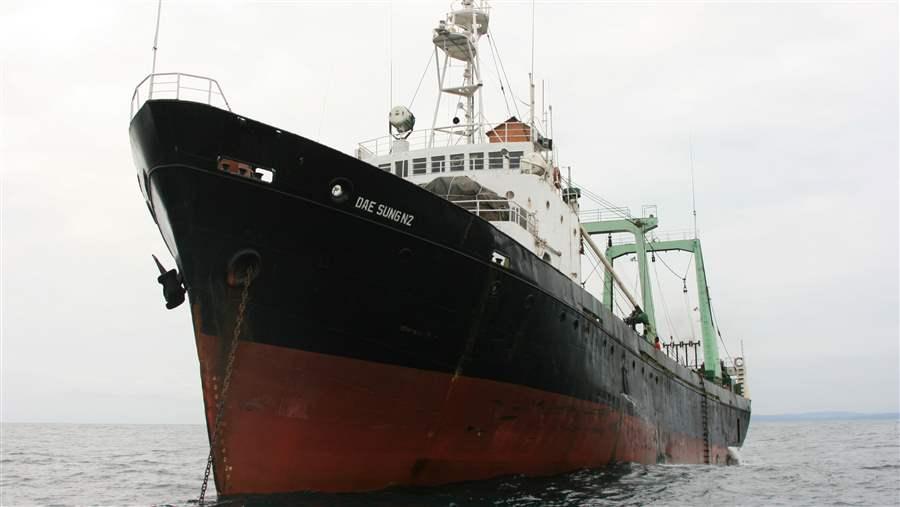Vessel Identification: Ever Closer to a Foolproof System
 Mike Markovina, Marine Photobank
Mike Markovina, Marine PhotobankIssued on behalf of the International Maritime Organization (IMO), identification numbers help authorities quickly determine who owns and operates a vessel.
Note: This analysis was updated March 9, 2016 to clarify expected implementation timelines for IMO number mandates by regional fisheries management organizations.
Note: This article is part of the series Ending Illegal Fishing 2016.
The mandate by four regional fisheries management organizations (RFMOs) requiring vessels fishing their waters to have unique identification numbers came into force Jan. 1, 2016. By the start of 2017, one additional RFMO’s mandate will be implemented, with two more anticipated to follow by the end of 2017.
Issued on behalf of the International Maritime Organization (IMO), these numbers help authorities quickly determine who owns and operates a vessel; how, where, and when it is licensed to fish; and other vital details that can help pinpoint illegal activity. That can lead to more effective enforcement when needed, but it also allows law-abiding fishers to carry on uninterrupted.
Why do we need IMO numbers? Simply put, other identifying features, such as a boat’s name, radio call sign, or flag of national registration, are easy to change and, in many cases, not unique to a vessel. IMO numbers are similar to the vehicle identification numbers on cars. Without them, information about a vessel’s origin, history, and operational status remains unknown.
The increasing number of RFMOs worldwide that require these numbers means a significant portion of the largest fishing vessels will soon be identifiable by this tested and effective mechanism. This will drive us toward a functional list of vessels that is accessible around the globe. Adding to the usefulness of IMO numbers, the U.N. Committee on Fisheries agreed in 2014 to use them as official identification for a future Global Record of Fishing Vessels.
What’s next?
Pew has been campaigning to build a worldwide mandate for IMO numbers—already required for merchant and passenger ships—on fishing vessels 24 feet or longer because they represent a critical building block in the global fisheries enforcement system. The results show increasing recognition of the value of these numbers beyond traditional enforcement and monitoring authorities. The international market wants to see more accountability in the supply chain to boost traceability, while retailers seek to understand what a fully transparent system would look like. That starts with properly identifying the vessels responsible for the catch.
This tracking system can be put in place at no cost to the crew or vessel owners. It does not force good actors to jump through financial hoops. Over the next year, we will advocate for more widespread use of IMO numbers to ensure that both flag states and coastal states recognize the value of this identification system and the benefits of making it mandatory.









